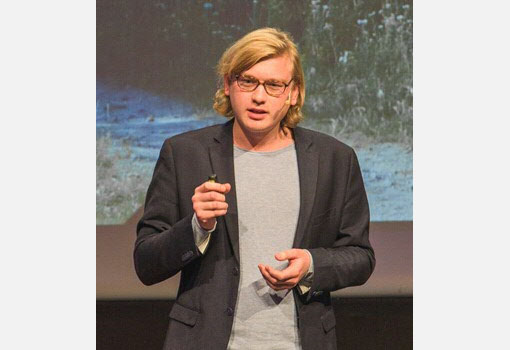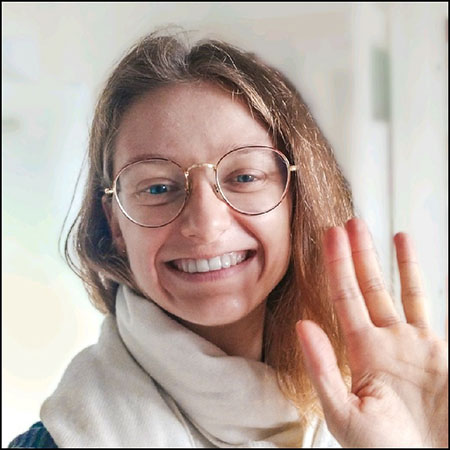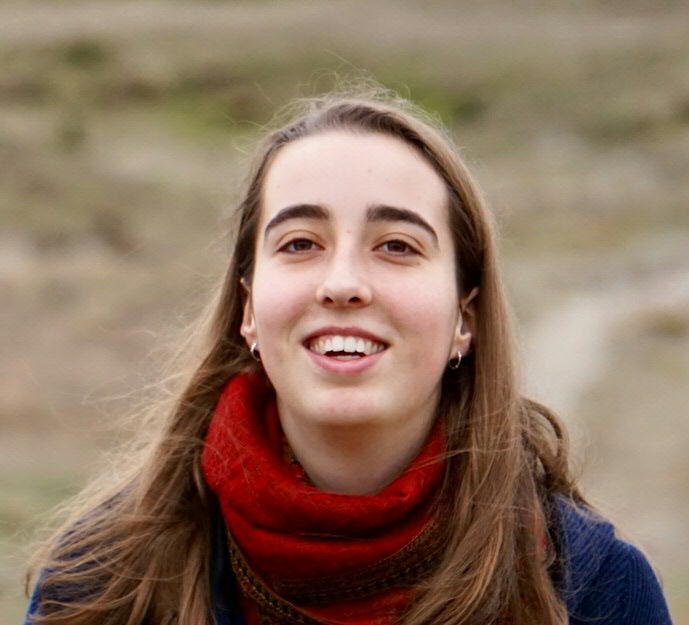
Christiaan Triebert
afgestudeerd in 2015I'd be happy to see a philosophy course integrated in all academic programmes
The Faculty of Philosophy feels a hidden gem of serenity in an otherwise bustling street of the Netherlands' cosiest city centre. Its entrance, and I mean its student entrance, not the main door at the street side which can only be opened by staff, is accessible through an alley that leads to a small courtyard cluttered with bikes. I had a hard time finding it behind the façade of the Oude Boteringestraat, which made me arrive late for my first ever lecture there, as if I was a freshman again.
... Day in, day out, I’d focus on conflict and war, strengthened even more by the wide variety of the Middle Eastern Studies courses I took in addition to my degree programme. With hitch hiking as my purest passion, I enjoyed listening to the countless interpretations and perspectives people have on conflicts, war, and the world itself. But questions that were once simply interesting to explore, eventually started to bug me. What is truth? Is there a truth? What is right, what is wrong? What ethical responsibilities do I have? What does scientific even mean? Some thought-provoking courses on theoretical and methodological problems within IRIO made me realize I wanted to question more. But I was already far into my bachelor’s programme… What to do?An absolute godsendAnd then I found out about the English-taught Philosophy of a Specific Discipline programme. An absolute godsend for those curious students that wish to explore more philosophical aspects of science, I must say. While continuing my normal programme, I had the opportunity to also deepen and widen my philosophical interest. The programme did not give a simple answer to my questions. Often, they were a tantamount of possible answers. But perhaps more importantly the programme offered the tools to approach such questions, it taught the skill of thinking critically, thereby only widening the gray zone. Besides, I must also emphasize that I felt the lecturers genuinely care about their students, given their critical and useful feedback on essays and exams, as well as their well-prepared lectures.I’d be happy to see a philosophy course integrated in all academic programmesThat sounds like a lot of sunshine and roses. Which it is, from my perspective. If there is one quote that intrigues me, it’s Friedrich Nietzsche’s ‘There are no facts, only interpretations’. He wrote the sentence in his essay On Truth and Lies (1873). There is no objectivity, only subjectivity. All our ideas and judgments are formed through our own perspective. In today’s information age, we have access to the greatest amount of information ever. However, the amount of misinformation and disinformation also appears to be increasing. Therefore, one of the most important aspects of this programme has not been finding concrete answers but mastering the skill to think critically. I’d be happy to see a philosophy course integrated in all academic programmes. But well, that’s my opinion. In Nietzsche’s words, ‘You have your own way. I have my way. As for the right way, correct way and the only way, they do not exist.’ So for now, the Philosophy of a Specific Discipline provides an excellent solution, for me, and just like its location, its existence also still remains a hidden gem for many university students.About ChristiaanThis interview was taken in 2016. After finishing his Bachelor's in Groningen, Christiaan Triebert earned a Master’s degree in War Studies at King’s College London. In 2017, he was awarded the European Press Prize for his reconstruction of the coup in Turkey in 2016. From then on, things developed quickly. He has worked for Bellingcat and Airwars. After that, Christiaan worked for Bellingcat and in 2019, he started at the New York Times (and was awarded UG Alumnus of the Year).
lees verder ...








